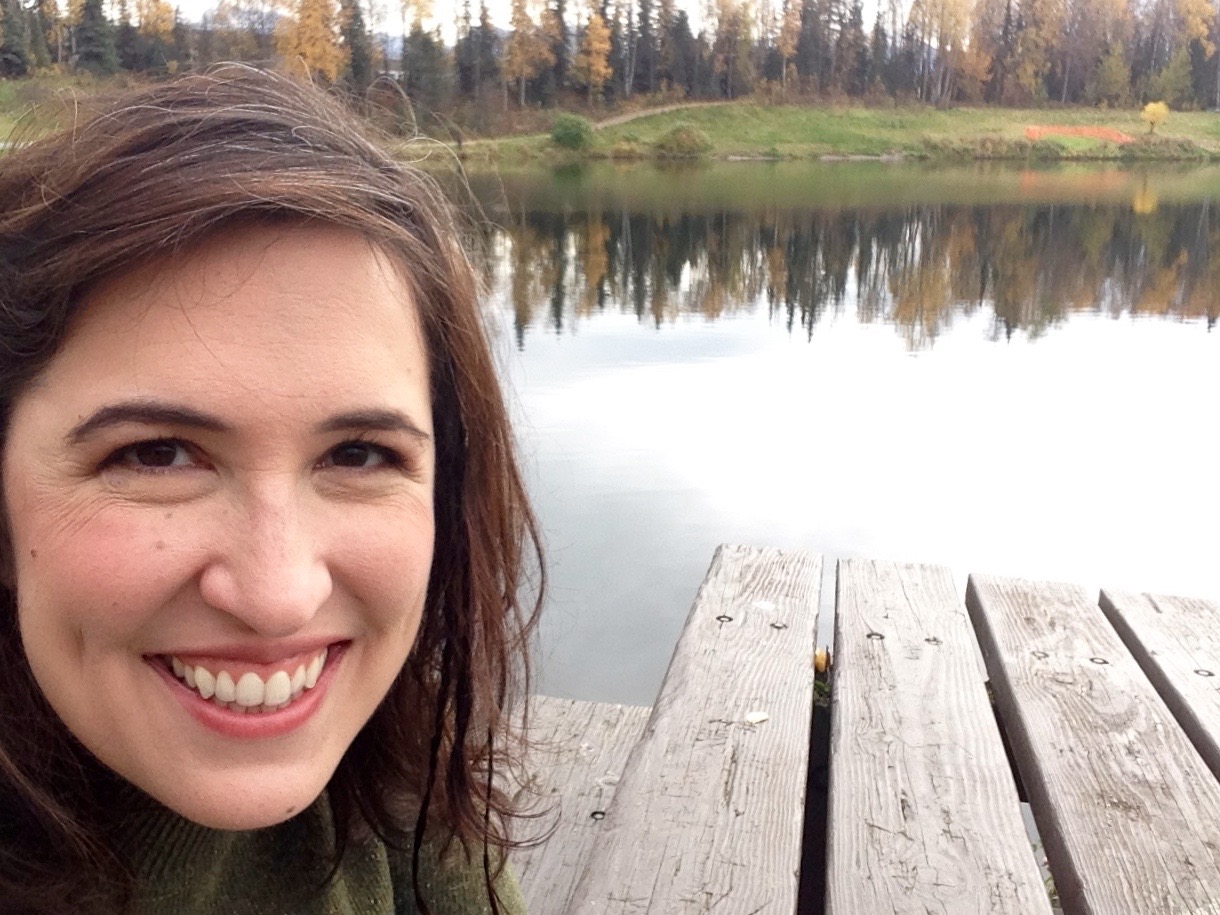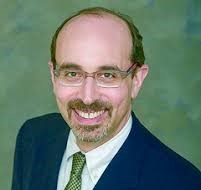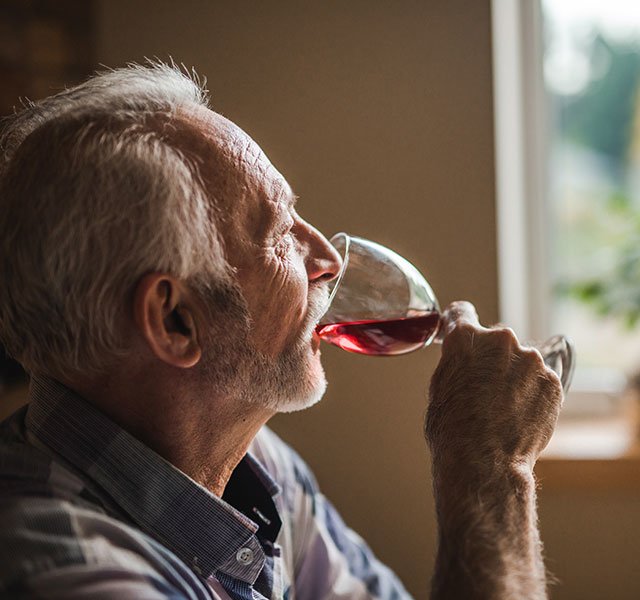This article is the next in our series on the future of aging: interviews with people who are experts in their fields and are also visionaries. We’re asking them to talk about what they believe will happen in the years ahead to change the experience of aging.
A geriatric psychiatrist, Alzheimer’s researcher and writer Marc Agronin, MD, has written or cowritten eight books, been published in the New York Times and Scientific American, and blogged for the Wall Street Journal. Agronin is a leading voice in transforming how Americans view old age.
Marc Agronin, MD, knows old age—as much as a 51-year-old could anyway. In particular, he knows difficult old age.
As vice president of behavioral health and clinical research, Agronin oversees the mental health services at Miami Jewish Health Systems, whose 25-plus-acre campus includes a hospital, assisted living community and large nursing home.
On average, his patients are about 90 and have dementia, which is his clinical and research focus. So every day, he witnesses common ravages of aging at their worst. Yet to Agronin, getting older is not depressing. On the contrary, it’s powerful.
Agronin is helping lead the charge to improve the experience of aging—particularly for people who have dementia. “In my work as a geriatric psychiatrist I have learned that aging equals vitality, wisdom, creativity, spirit, and, ultimately, hope” (emphasis his), he wrote in his book How We Age (2011). “And for an increasing number of aged individuals, these vital forces are growing by the day.”
The Calling
The seeds for Agronin’s positive, often reverent, views about aging were planted early on, when he was growing up in Appleton, WI, surrounded by warm, colorful, older relatives. His great-grandfather ran a dairy and bakery; his grandmother frequented Green Bay Packers’ games and was “probably the craziest fan of everyone there,” he says. An older aunt was a weight lifter, and his grandfather was the town doctor in nearby Kaukauna.
“When I decided to go into medicine, to me it was just a natural fit that I would work with older people,” he says. “I always loved to hear stories of older people’s lives—always, since I was young, fascinated by the intersections of their stories and history.”
“I never really sat down and thought, I want to do this,” he says about geriatric psychiatry. “It felt like a calling for me.”
In their early 90s … they want to have psychotherapy about relationship issues and sexual problems …
–Marc Agronin
Half of a typical workday for Agronin is spent seeing patients, through either the memory center or the Alzheimer’s clinical trials program. The other half is spent more on managerial tasks or on writing. When he can, he roams the halls of the nursing home, assisted living center or hospital, visiting with patients informally, on their own turf. “I almost feel like one of the residents here,” says Agronin, who’s worked at Miami Jewish Health Systems for 18 years. “I know people and their families and their grandchildren.”
He takes issue with the notion that nursing homes are “God’s waiting rooms,” as they’re often derisively called. His patients aren’t folks just waiting to die, he says. In How We Age, he wrote, “We imagine the pains of late-life ailments but not the joys of new pursuits; we recoil at the losses and loneliness and fail to embrace the wisdom and meaning that only age can bring.”
To Agronin, who’s working on a sequel to How We Age and helping to plan what will likely be the first dementia village in the United States, getting older is not a depressing roll down a gravestone-lined slope but an unfurling of untapped power and potential—an important life stage in its own right, bringing essential roles to fill and influences to make.
SCF: What is changing right now in geriatric psychiatry? Is there an important trend that you could see coming to larger fruition?
MA: There are two opposing trends here. On the one hand, people are living longer, healthier lifespans. I’m seeing more and more patients in their 80s and 90s who are in generally good physical health, are vigorous, are involved in life more so than ever before. It’s not uncommon to have someone to come in in their early 90s, and they want to have psychotherapy about relationship issues and sexual problems and family discord that we might not have even imagined 10 and 20 years ago.
What I see for this group of individuals is an incredible expansion of lifestyle choices well into one’s 90s. We will not think twice about psychotherapy, about being aggressive with other medications and other treatments. And the focus is not easing the pathway into the grave, but the focus is on enriching their lives.
I have one older friend of mine who’s in his 90s, and he loves to come in and talk about all his relationship issues and what he’s doing with his girlfriend and what’s happening at work. If I close my eyes for a moment, I could be talking to someone in their 50s and 60s.
On the other hand, the trend that is disrupting all of this is the fact that Alzheimer’s disease is at epidemic proportions. At the age of 85 and above, nearly 50 percent of the population has Alzheimer’s disease, not to mention all the other forms of dementia that people can have. And this is creating a growing community of people who are suffering from cognitive impairment, which is robbing them of their independence—which is requiring significant caregiving.
Many older individuals who would otherwise like to be engaging in many different life activities are really overwhelmed with being caregivers for a spouse or a parent—sometimes even a child—because we do not yet have, and do not have on the horizon, a cure for Alzheimer’s disease. So it’s these two very different trends that are pulling at one another.
I’m involved in the latest clinical trials, trying to find more effective treatments and ultimately a cure for Alzheimer’s disease. At the same time, we’re really looking at what’s the best care model for these individuals. How can we create communities outside of institutions, or care models within institutions, to provide for optimal lifestyles for people?
My focus is getting away from a deficit model that looks at people as diseases, full of decline, decrepitude. My focus really is on assessing and balancing things out with what are people’s strengths and trying to create models that can really leverage these strengths.
SCF: The World War II generation tended not to seek psychiatric therapy. Are you seeing that same pattern with boomers, as they get older, or do you think it’s changing?
MA: It’s changing. I think what really catalyzed a change towards mental health was two things. The first Persian Gulf War was right around the time that we were hitting the 50th anniversaries of World War II events. A lot of World War II veterans who were in full retirement and were starting to feel the effects of aging were suddenly seeing a reemergence of posttraumatic symptoms—also more age-related issues, which triggered mental health issues.
So the Greatest Generation, as I think they are aptly called, really began to see mental health as a critical part of overall health. I was being trained at the time in part of the VA system, and I was able to work with so many veterans and see this change and help do an enormous amount for them.
Baby boomers are a very different generation because they’re very open to mental health treatment. They are more activists. They might not be as trusting of their physicians, but they want to work in partnership with them. Older boomers form really close partnerships with me in my practice.
SCF: Despite seeing positive changes, you’ve also said that some older people still wait a surprisingly long time before seeking help for relatively uncomplicated mental-health issues. Could you give us some examples of those issues?
MA: Number one would be memory changes. A lot of people have memory changes not because of Alzheimer’s disease but because of treatable, reversible conditions. It’s medications or depression or substance abuse. But the longer they wait, the more damage there can be, and the more hopeless they get—and it’s more difficult to treat.
Number two, anxiety disorders are actually the most common psychiatric diagnoses in late life, but they’re often hidden. And people will try all sorts of home remedies—supplements and sleeping pills and alcohol, and [for] more and more people, cannabis. It’s just it’s not doing the trick because it’s not real treatment.
SCF: You specialize in memory disorders. One thing that’s caught the media’s attention in recent years is the concept of “dementia villages”—secure neighborhoods for people living with dementia. They have shops and restaurants and caregivers dressed in street clothes. In fact, at Miami Jewish Health Systems you’re working on creating the first dementia village in the United States. Do you see such villages as an ideal potential future for dementia care?
MA: Yes and no. It’s a really alluring model, but it has to be paired up with the right model of care. It’s easy to design and build a beautiful, cool-looking place, but the care within it has to be commensurate with that.
SCF: To your point, even the design for the village you’re working on isn’t only about looking good. It takes into account practical things like Miami’s hot weather, incorporating shade to keep residents safe and comfortable.
MA: We want a design that’s beautiful and functional and that incorporates nature into it, but also one that contains elements that draw people into them and get the families involved—elements like an indoor/outdoor café, a store, a wellness center with a type of spa, a theater, a creative arts program, all purposed to the level of people involved—designed for individuals who have moderate to severe physical and cognitive disabilities.
We want a safe, enclosed community but that’s full of life, not only because of the programs and activities but also because it draws into it family and kids and pets and staff that love working there.
SCF: Do you see these types of villages in the future becoming more common in the United States?
MA: I see a lot of somewhat gimmicky places coming up that look the part—that have really cool design features. I don’t disagree with those features. But the complexity of working with individuals with moderate to severe cognitive impairment requires more than just a façade. It’s a big challenge. It’s very complex, and it’s expensive, and it’s time consuming. And I don’t think there’s enough of a consistent model to replicate yet.
I’m not even sure that village is the right word for [what we’re designing]. We’re using that term now more as a placeholder, but this is more than just a village per se. It’s really meant to be an evolution in terms of how people with these impairments are able to live and still be involved in the community.
SCF: In a blog post for the Wall Street Journal, you wrote about bringing to your 50th birthday party a booklet of gratitude to your elders, to put a positive spin on getting older. Do you see aging in a different way from most people?
MA: In my earlier years, I did a lot of cartooning. So I made a comic book that talks about all the things I’m grateful for, being 50. It talks about all the people in my life that have made a difference—going all the way back to even some of my great-great-grandparents—and focuses on how I want to approach the next 50 years.
At the same time, another friend had a 50th birthday, and they presented him with this gag gift that poked fun at aging. Everyone was looking and laughing. What struck me is that if someone had a similar gag gift that poked fun at their gender or their religion or race, we’d be horrified over it. We’d reject it. So why is aging still a target? We need to change that.
My take on aging is as follows: I would love to live to 100 or above. I hope I do, and I hope I live to that age in good form. But I realize that that’s an uncertain formula.
I know that if I take good care of my body and my mind that I’ll increase the odds of that. But I also realize that there’s a lot more preparation that needs to be done to live a good old age. And that’s recognizing the strengths that we gain as we get older and using those strengths to deepen relationships with family and friends. It’s thinking about what my purpose in life will be, what I want my legacy to be. These things are aided by years, but they don’t absolutely depend on it.
And to me, that is the most gut-satisfying aspect of aging. You’re going to face losses. I dread them. [You’re] going to have physical challenges. I’m afraid of them. I also know that a lot of strengths are coming my way that can help me and all my loved ones to cope with those as we get older.
SCF: Strengths like what?
MA: One strength is that we build up a reserve of experiences and knowledge that we can turn into wisdom. And by wisdom, I just don’t mean coming up with good decisions as you get older but something much deeper. Whether you look at intelligence, emotional state, spirituality, we can continue to learn and to grow and to develop.
I don’t really have a sense of retirement for what I do because I know that the mission I have is going to take a lot longer than the next 15 years, when I’ll be 65. I need many decades to realize this vision and this dream. I think everyone can do that, in a certain way. But what happens is people lose the confidence; they lose the sense that they can make a change—that they can inspire themselves and others to do that.
People get too caught up in wanting to live out their bucket list, forgetting the fact that it’s a lot more than just that as you get older. You have enormous power as a grandparent or a grand uncle, as a community leader, as a spiritual leader, as a docent, whatever—so much power to influence younger generations. We cannot cede that as we get kind of lost in still trying to be like teenagers.
I think this notion of trying to make old brains like young brains is misguided. I think young brains have a lot to learn from old brains. We need to realize that aging itself is the solution, not the problem, to so much of what we face as we get older.
So it’s a different perspective. But when I look at the older people in my life who have had the greatest impact on me: regardless of their mental and physical condition, I think they really understood the power of aging, and they harnessed it. They took it seriously. And it made a difference in their own life and had a profound impact on me and on other younger people. So if I can capture that, that’s my goal.
This interview has been edited for length and clarity.

Leigh Ann Hubbard is a professional freelance journalist who specializes in health, aging, the American South and Alaska. Prior to her full-time freelance career, Leigh Ann worked at CNN and served as managing editor for a national health magazine. A proud aunt, Leigh Ann splits her time between Mississippi and Alaska.



